Thesaurus : Doctrine
► Référence complète : O. Jouanjan, "L’Ecole historique du Droit en Allemagne : entre histoire et philosophie du droit", Université de Poitiers", conférence du 8 février 2023
____
May 7, 2025
Thesaurus : Doctrine
► Référence complète : J.-L. Halpérin et A.D. Kessler, Les échanges en matière de droit pénal entre les Etats-Unis et l'Europe / Transatlantic Engagement with Criminal Law, Clio Thémis, Open Edition, mai. 2025, en numérique et accès libre.
____
____
► sommaire :
-
Jean-Louis Halpérin et Amalia D. KesslerIntroduction [Texte intégral]
-
Jean-Louis Halpérin
-
Sylvia Kesper-Biermann
-
Amalia D. Kessler
-
Luigi Lacchè
-
Aniceto Masferrer
________
April 30, 2025
Thesaurus : Doctrine

► Full Reference: A. Nicollet, "La charge du devoir de vigilance sur les entreprises s'inscrivant dans les chaines de valeur(The burden of Vigilance Duty on companies in value chains)", in M.-A. Frison-Roche (ed.), L'Obligation de Compliance, Journal of Regulation & Compliance (JoRC) and Dalloz, coll. "Régulations & Compliance", 2025, to be published.
____
📕read a general presentation of the book, L'Obligation de Compliance, in which this article is published
____
► English summary of this contribution : This article identifies the factors that lead to companies being held liable under the Vigilance Duty for which they are responsible. The first element is the notion of "chain", a new concept for the Law that has been incorporated into the legal system (I). This may be explicit or implicit, referring to the value chain, the activity chain or the supply chain. These vocabulary variations, depending on the texts and national laws, are aimed at cases where there is no overlap, but the duty of vigilance is transparently aimed at the value chain of which the others are part. The concept of the "chain" could therefore play an increasingly important role in Economic Law, in that it is its very existence that gives rise to a duty of vigilance on the part of the company that governs the structure of the chain.
The second part of the article shows that this Vigilance Duty places a shared burden on the companies in the chain. Indeed, while the company that is the master, either through corporate techniques or because it governs the structure of the chain more factually, must always fulfill this obligation, the companies along the chain cannot be relieved of it. The burden is cumulative, as stated in German legal system, but this principle should be generalised: performance may be joint, articulated, and performance by one may presume performance by the other, the obligation of the other may be performed by the other, but this does not amount to exemption. This concept allows for a global group policy without destroying the effectiveness of the Compliance Obligation.
Indeed, and this is the third part of the article, Liability is cumulative. The master company's liability is personal and it must not be able to shirk it. The companies in the value chain, while benefiting from a presumption of conformity by the very fact of the chain phenomenon and the multiple contracts and corporate shareholdings that structure it, are also liable if they fail in their Duty of Vigilance. National legislation varies widely in terms of the extent of liability incurred, with some not addressing the issue at all while others go into great detail, but they are not intended to call this principle into question.
________
Dec. 7, 2023
Thesaurus : 05. CJCE - CJUE
► Référence complète : CJUE, Première chambre, 7 décembre 2023, aff. C‑2023/957, Schuffa.
____
________
Oct. 10, 2022
Thesaurus : Doctrine
► Référence complète : D. Weihrauch, S. Carodenuto, S. Leipold, "From voluntary to mandatory corporate accountability: The politics of the German Supply Chain Due Diligence Act" ("De la responsabilité volontaire à la responsabilité obligatoire des entreprises : La politique de la loi allemande sur la chaîne de valeur et la vigilance"), Regulation & Governance, octobre 2022.
____
► Résumé de l'article (fait par les auteurs, en anglais) : Following a long-standing and highly contested policy debate, in June 2021, the German parliament passed the Supply Chain Due Diligence Act requiring mandatory due diligence (MDD) of large companies, holding them accountable for the impacts of their supply chain operations abroad. Applying the discursive agency approach and using evidence from policy documents and 21 interviews with key stakeholders, we analyze the political strategies that paved the way toward MDD in Germany. The decisive strategy was an innovative benchmarking and monitoring mechanism that provided the legitimacy for a law and opened a window of opportunity for MDD supporters. Civil society and supportive politicians used this window of opportunity to build broad political coalitions that included the support of some companies. We discuss the ramifications of these findings for understanding the domestic politics behind the newly emerging norm of foreign corporate accountability.
________
June 3, 2021
Thesaurus : Doctrine
March 9, 2021
Compliance: at the moment

May 22, 2020
Thesaurus : Doctrine
Full reference: Support, A., "La refondation de l'Europe ne pourra se faire sans sortir des traités actuels" ("The refoundation of Europe cannot be done without leaving the current treaties"), column in Le Figaro, 22nd of May 2020
Read Alain Supiot's column (in French)
In this column, Alain Supiot underlines the opportunity offered by the judgment of the Court of Karlsruhe of May 5, 2020 concerning the proportionality of the unconventional monetary measures adopted by the ECB.
May 8, 2020
Thesaurus : Doctrine
Full reference: Pistor, K., Germany Constitutional Court Goes Rogue, Project Syndicate, 8th of May 2020
June 28, 2019
Publications

It is often observed, even theorized, even advised and touted, that Compliance is a mechanism by which public authorities internalize political (eg environmental) concerns in big companies, which accept them, in Ex Ante, because they are rather in agreement with these "monumental goals" (eg saving the planet) and that this shared virtue is beneficial to their reputation. It is observed that this could be the most successful way in new configurations, such as digital.
But, and the Compliance Mechanism has often been brought closer to the contractual mechanism, this is only relevant if both parties are willing to do so. This is technically true, for example for the Deferred Prosecution, which requires explicit consent. This is true in a more general sense that the company wants to choose itself how to structure its organization to achieve the goals politically pursued by the State. Conversely, the compliance mechanisms work if the State is willing to admit the economic logic of the global private players and / or, if there are possible breaches, not to pursue its investigations and close the file it has opened, at a price more or less high.
But just say No.
As in contractual matters, the first freedom is negative and depends on the ability to say No.
The State can do it. But the company can do it too.
And Daimler just said No.
___
Publicly, including through an article in the Wall Street Journal of June 28, 2019.
The company sets out in a warning to the market that it is the object of a requirement on the part of the German Motor Authority (Kraftfahrt-Bundesamt) of an allegation of fraud, by the installation of a software, aimed at misleading instruments for measuring emissions of greenhouse gases on cars using diesel.
It is therefore an environmental compliance mechanism that would have been intentionally countered.
On this allegation, the Regulator both warns the company of what it considers to be a fact, ie compliance fraud, and attaches it to an immediate measure, namely the removal of the circulation of 42,000 vehicles sold or proposed by Daimler with such a device.
And the firm answers : "No".
_____
Which is probably only beginning, since a No ends the dialogue of Ex Ante to project in the Ex Post sanction procedures, calls 6 observations:
- 1. No doubt Daimler, a German car manufacturing company, has it in mind in this allegation of fraud calculating pollution of its diesel cars what happened to his competitor Volkswagen: namely a multi-billion dollar fine, for lack of compliance in a similar hypothesis (so-called dieselgate). The strategic choice that is then made depends on education through the experience of the company, which benefits as such from a previous case that has had a very significant cost. Thus educated, the question is to measure the risk taken to refuse any cooperation, when the company can anticipate that it will still result in such an amount ....
- 2. In addition, we find the difficulty of the distinction of Ex Ante and Ex Post. Indeed, saying No will involve for the company a cost of confrontation with the Regulator, then the peripheral jurisdictions or review courts. But in Germany, the Government itself, concerning a bank threatened with compliance proceedings and almost summoned by the US regulator to pay "of its own free will" a transactional fine, felt that this was not normal, because it must be the judges who punish, after a contradictory procedure with due process and after established facts.
- 3. However, this is only an allegation, of probable assertions, of what legally allows to continue, but which does not allow to condemn. The confusion between the burden of proof, which presupposes the obligation to prove the facts before being able to sanction, and the burden of the allegation, which only supposes to articulate plausibility before being able to prosecute, is very damaging, particularly if we are committed to the principles of Repressive Law, such as the presumption of innocence and the due process. This distinction between these two probationary charges is at the heart of the probatory system in the Compliance Law. Because Compliance Law always looks for more efficiency, tends to go from the first to the second, to give the Regulator more power, since businesses are so powerful ....
- 4. But the first question then arises: what is the nature no so much of the future measure to be feared, namely a sanction that could be taken later, against Daimler, if the breach is proven, or which will not be applied to the firm if the breach is not established; but what is the nature of the measure immediately taken, namely the return of 42,000 vehicles?
- This may seem like an Ex Ante measurement. Indeed, the Compliance assumes non-polluting cars. The Regulator may have indications that these cars are polluting and that the manufacturer has not made the necessary arrangements for them to be less polluting (Compliance) or even organized so that this failure is not detected ( Compliance fraud).
- This allegation suggests that there is a risk that thiese cars will polluting. They must immediately be removed from circulation for the quality of the environment. Here and now. The question of sanctions will arise after that, having its procedural apparatus of guarantees for the company that will be pursued. But see the situation on the side of the company: having to withdraw 42,000 vehicles from the market is a great damage and what is often called in Repressive Law a "security measure" taken while the evidence is not yet met could deserve a requalification in sanction. Jurisprudence is both abundant and nuanced on this issue of qualification.
- 5. So to withdraw these cars, it is for the company to admit that it is guilty, to increase itself the punishment. And if at this game, taken from the "cost-benefit", as much for the company immediately assert to the market that this requirement of Regulation is unfounded in Law, that the alleged facts are not exacts, and that all this the judges will decide. It is sure at all whether these statements by the company are true or false, but before a Tribunal no one thinks they are true prima facie, they are only allegations.
- And before a Court, a Regulator appears to have to bear a burden of proof in so far as he has to defend the order he has issued, to prove the breach which he asserts exists, which justifies the exercise he made of his powers. The fact that he exercises his power for the general interest and impartially does not diminish this burden of proof.
- 6. By saying "No", Daimler wants to recover this classic Law, often set aside by Compliance Law, classic Law based on burden of proof, means of proof, and prohibition of punitive measures - except imminent and future imminente and very serious damages - before 'behavior could be sanctioned following a sanction procedure.
- Admittedly, one would be tempted to make an analogy with the current situation of Boeing whose aircraft are grounded by the Regulator in that he considers that they do not meet the conditions of safety, which the aircraft manufacturer denies , Ex Ante measurement that resembles the retraction measure of the market that constitutes the recall request of cars here operated.
- But the analogy does not work on two points. Firstly, flight activity is a regulated activity that can only be exercised with the Ex Ante authorization of several Regulators, which is not the case for offering to sell cars or to drive with. This is where Regulatory Law and Compliance Law, which often come together, here stand out.Secundly, the very possibility that planes of which it is not excluded that they are not sure is enough, as a precaution, to prohibit their shift. Here (about the cars and the measure of the pollution by them), it is not the safety of the person that is at stake, and probably not even the overall goal of the environment, but the fraud with respect to the obligation to obey Compliance. Why force the withdrawal of 42,000 vehicles? If not to punish? In an exemplary way, to remind in advance and all that it costs not to obey the Compliance? And there, the company says: "I want a judge".
______
Jan. 8, 2019
Blog
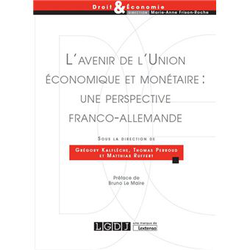
La collection Droit & Economie sort son 33ième volume.
Il est consacré à l'Europe, c'est-à-dire à l'amitié franco-allemande, puisqu'aujourd'hui c'est sur cette amitié-là que l'on peut croire encore à l'Europe.
Si l'on a une vision politique des espaces, alors c'est la notion d'amitié qui doit ressortir.
C'est autour d'elle que Bruno Le Maire a construit sa préface : lire la préface que le ministre de l'économie et des finances a fait à l'ouvrage.
Oct. 19, 2015
Thesaurus
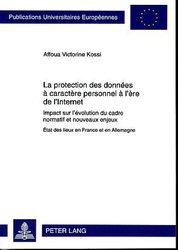
Référence complète : Kossi, A.V., La protection des données à caractère personnel à l'ère de l'Internet. Impact sur l'évolution du cadre normatif et nouveaux enjeux. État des lieux en France et en Allemagne, coll; "Publications Universitaires Européennes", Peter Lang, 2011, 362 p.
L'auteur pose qu'Internet bouleverse la société et constitue un danger pour l'individu. La France et l'Allemagne ont été les premiers à réagir à travers les lois qui protègent l'individu contre la puissance informatique, puissance à laquelle Internet est lié. L'auteur observe que depuis le droit législatif a du peine à protéger l'individu et que c'est plutôt les tribunaux, notamment les Cours constitutionnelles, françaises et allemandes, qui protègent l'Internaute, dans son droit à la protection de ses données personnelles face à la puissance des entreprises de "l'ère de l'Internet".
Jan. 20, 2015
Thesaurus : Doctrine
Référence complète : MARTUCCI, Francesco, Programme OMT de la BCE : voici venu le temps des juges, Revue Banque, n°779-780, janvier 2015, p.60-62.
Les étudiants de Sciences Po peuvent accéder au texte de l'article par le Drive de Sciences Po (dossier MAFR, Régulation)
Dans cet article publié avant que ne soit connues les conclusions déposées par l'avocat général, l'auteur affirmé que la question préjudicielle posée par le Tribunal constitutionnel allemande est une question "existentielle" pour la monnaie européenne et pour la zone euro. En effet, le programme d'achat de titres souverains sur les marchés secondaires (OMT) est, contrairement au programme de soutien précédent (SMP) présenté par le président de la BCE comme pouvant être "illimité".
L'auteur souligne que lorsqu'on lit la décision par laquelle le Tribunal constitutionnel allemande a renvoyé la question préjudicielle à la CJUE, on y perçoit sa propre conception, à savoir la non-conformité du programme OMT au traité de fonctionnement de l'Union européenne (TFUE), sauf à interpréter ce programme de façon très restrictive, notamment par la renonciation à son caractère "illimité" (ce qui revient à lui ôter sa puissance même ...).
Plus encore, le Tribunal constitutionnel allemand considère que si la CJUE ne le suivait pas, alors elle porterait atteinte à "l'identité constitutionnelle" de l'Allemagne (ce que l'auteur de l'article conteste, notamment au nom de la hiérarchie des normes).
L'auteur de l'article évoque plusieurs positions possibles de la CJUE (la dernière correspondant à celle suggérée par la suite par l'avocat général).
Sept. 26, 2014
Blog
 La filiation est un élément fondamental des sociétés.
La filiation est un élément fondamental des sociétés.
Il a été démontré en anthropologie que certaines règles étaient fondamentales pour l'équilibre des sociétés. Ainsi en est-il de la prohibition de l'inceste, entre les parents et les enfants, entre les frères et les soeurs.
L'une des raisons pour lesquels le droit prohibe d'une façon absolue les conventions de maternité pour autrui (que certains appellent "G.P.A.") tient au fait que non seulement le bébé est vendu comme une chose, non seulement la mère de celui-ci, la mère qui le porte, est alors une esclave, mais encore tient au fait que si on le permettait, l'on pourrait arriver à valider l'inceste.
Ainsi, lorsque les arrêts du 26 juin 2014 de la CEDH condamnèrent la France pour ne pas prendre en considération le lien entre l'enfant issu d'une "GPA" faite à l'étranger, le professeur de droit Muriel Fabre-Magnan affirma que le droit fondamental de la filiation était si heurté que l'on pouvait craindre dans un choc en retour la levée de la prohibition de l'inceste.
Trois mois après, le conseil d'éthique propose en Allemagne de lever la prohibition juridique de l'inceste entre frère et soeur. Ce n'est pas la solution technique qui est bouleversante, mais la motivation. En effet, le Conseil estime qu'il ne convient pas de sanctionner ainsi deux "adultes consentants" qui s'aiment.
Le consentement serait donc seul maître à bord.
Le marché, qui ne fonctionne que sur l'ajustement des consentements et ne connaît que cela, a gagné pour être le seul modèle de référence. Le marché devient le modèle de la société même.
Qu'en aurait dit Claude Lévi-Strauss ?
Aug. 28, 2014
Porte dérobée sur le Droit
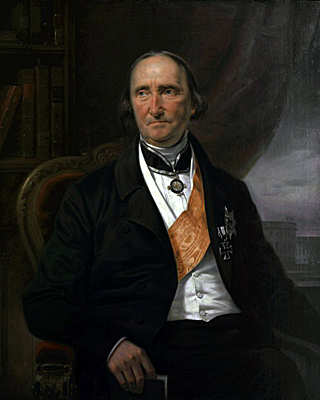 It is therefore necessary to take the statement for granted: the law expresses "the spirit of a people." We want to believe, since Savigny stated it
It is therefore necessary to take the statement for granted: the law expresses "the spirit of a people." We want to believe, since Savigny stated it
Following the great author does not avoid explaining the meaning of such a statement. Expressing the historical conception of law means that all legal events are the result of a culture of a "people", which has been built over the centuries. Thus, because a French "people" are, there is a French law that reflects this.
If this is true, then the implications of this fact are considerable. First, in order for a law to be effective, coherent and applied, it must correspond to the "spirit" of the people to whom it applies. The legislature and the courts must make it part of their art, not to rush a historical movement, do not ignore it,but to adopt the pace. Therefore, foreign legal techniques cannot be welcome.
The most important sources of law are the most spontaneous, that is to say, those in which people forge through the centuries of usage and customs. The law written on a white sheet of paper is a mistake, unless it is itself covered by a long period after.
The legislator and the judge should have taken to the method of knowing the spirit of their society in which they move: the sociology and history cease to be ancillary to become positive law. In this, the common law rooted in its "stare decisis" better expresses this conception than does the system of Civil Law.
But more importantly, there has to be a "people" whose mind law would collect. As rightly pointed out by the German Constitutional Court in 2009, there is no "European people". So how can we build Europe? While the French, British, German, Italian, Spanish, peoples etc. have such a different mind, and that expansion now brings us to the Slavic soul?
June 20, 2014
Porte dérobée sur le Droit

June 20, 2014
Blog


Jan. 19, 2012
Organization of scientific events
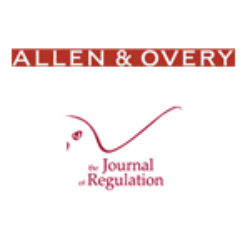
La richesse des interventions est venue notamment du fait que les orateurs appartenaient à des disciplines diverses et étaient soit français soit allemand par exemple le président français de l’autorité de la concurrence et le Président du Bundeskartellamt.
L’on observe que la notion même de compétitivité est fluctuante suivant que l’on se réfère à l’économie réelle ou à la finance. D’ailleurs, est discuté le point de savoir si les banques doivent être traitées par les autorités de concurrence comme des entreprises ordinaires ou au contraire comme des entreprises particulières.
Il ressort en tout cas nettement que les droits de la concurrence sont fondamentalement situés c'est-à-dire dépendent de la culture du pays et de son histoire, notamment l’ordo-libéralisme allemand, dans lequel la concurrence est une parti d’une politique plus générale dont l’autorité de concurrence n’a pas la charge et que l’Etat assure, l’ensemble devant être cohérent. La manifestation a montré à quel point la France et l’Allemagne ont des valeurs communes, dans leur conception de l’innovation ou du lien social, dont l’économie concurrentielle doit tenir compte.
En cela la micro-économie, si elle devait être trop universalisante, ne reflèterait pas la réalité.
April 10, 2002
Thesaurus : Doctrine
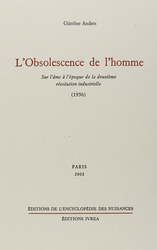
General reference : Anders, G., L'Obsolescence de l'homme. Sur l'âme à l'époque de la deuxième révolution industrielle, Traduction de l'allemand par Christophe David 1956, éd. l'Encyclopédie des Nuisances, coll." Editions IVREA", Paris, 2002, 360 p.
Dec. 5, 1997
Conferences
June 26, 1996
Conferences